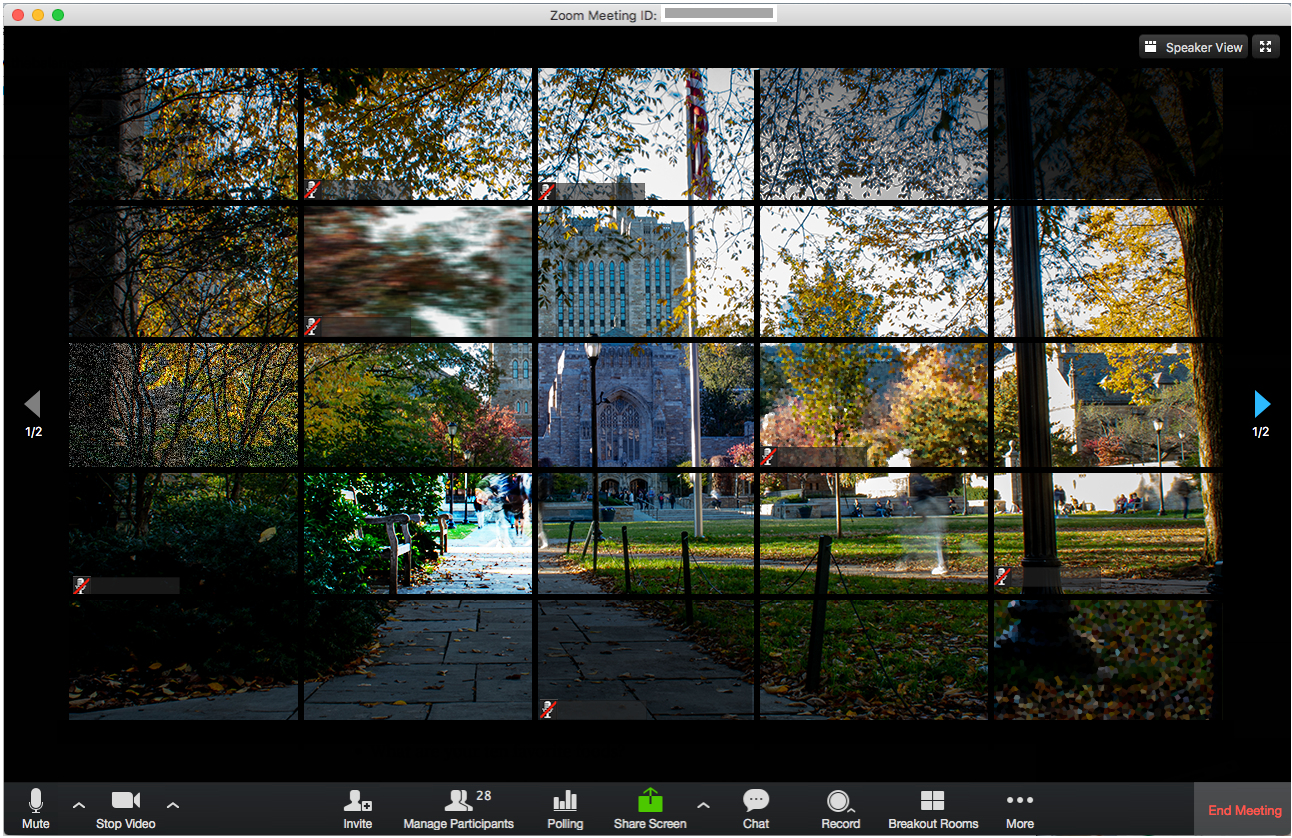
Zoe Berg, Staff Photographer
Although the COVID-19 pandemic has changed nearly every aspect of daily life, one of the largest changes for students was the rapid transition to remote classes.
When the first known cases of COVID-19 were emerging in Connecticut, students were assured that classes were expected to continue as normal. In a school-wide email issued March 7, 2020, the University presented new guidelines — such as adjusting or canceling events expected to have greater than 100 participants — in order to preserve the safety of the community. However, only three days later, students learned that a new decision had been made to move classes online until at least April 5. Students would largely engage in remote classes for the next year.
“At this point, I am asking you to leave campus if at all possible,” Dean of Yale College Marvin Chun wrote in an email to the community on March 11. “If you are already off campus, I ask that you not return. This is a strengthening of my original request, made possible by the decision that Yale College can arrange and pay for travel home for all students on financial aid. I understand that staying away from campus will pose challenges and hardships. Still, this is the most prudent course for community and individual safety.”
According to the original announcement made, students who were at home were to remain so after spring recess until in-person classes could resume, while those on campus should “make every effort” to leave by March 15. The decision came following a wave of similar moves from other Ivy League institutions, including Columbia, Princeton, Harvard and Cornell.
On March 14, students were informed that all classes and final exams would take place online for the remainder of the spring 2020 semester. The decision came after one member of the Yale community tested positive for COVID-19. Students were urged not to return to campus for the rest of the semester, barring exceptional cases.
The decision remains unprecedented in the history of Yale, which has mostly been able to keep its classes open through several large-scale global crises.
With the transition to online classes, students and professors quickly tried to learn methods of adapting to the new Zoom platform of their classes. Professors noted the significant change in their teaching styles necessitated by the pandemic.
“I could not use the same lecture I used before,” said professor Alice Kaplan of her class “The Modern French Novel,” in which students discuss Albert Camus’ The Plague. The novel’s key theme of isolation seemed all the more relevant given the pandemic. “We’re living through a more radical isolation.”
Shelly Kagan, professor of some of Yale’s most popular introductory philosophy courses, commented on the difficulty of feeling disconnected from the atmosphere of the classroom, not knowing whether his ideas were coming across to students.
However, as spring 2020 continued online, professors tried to uphold an optimistic attitude.
“Nature is having its rebirth,” wrote David Blight in a Canvas post to his Civil War class. “Our society will too.”
Remote learning also provided significant obstacles to students, who faced challenges relating to such things as time-differences and mental health. Students noted in particular the difficulties for those who identified as LGBTQ+ living at home.
On June 18, the University emailed faculty members instructing them to plan courses in accordance with a “residential/remote model” that allowed students to live in residence on campus while attending classes using “remote modalities.” At the time, the email’s suggestion of “de-densified” on-campus living did not specify how many students would be allowed on campus; this was revealed in a later email on July 1, in which the University announced that first years, juniors and seniors would be welcome on campus first semester, with first years being replaced by sophomores in the spring.
While some classes were taught in person throughout the 2020-2021 academic year, the vast majority took place over Zoom.
Despite the challenges of yet more semesters of remote courses, students and professors tried to find creative ways to adapt to the new online format, particularly now that they had increased experience with the Zoom platform.
For example, Alex Taranto ’23 described the ways in which her art class, “Color Practice,” was able to work around the limitations of the semester, such as the professor’s decision to add exercises completed through Adobe Illustrator. Meanwhile, Kadidia Sylla ’24, who was enrolled in “General Chemistry Laboratory I” remotely, also noted that, despite the many alterations to the traditional lab experience, some things always remain the same.
“Chemistry lab is just always going to be as intense, whether it’s remote or in-person,” she said.
The University expects to return to in-person classes for fall 2021.







